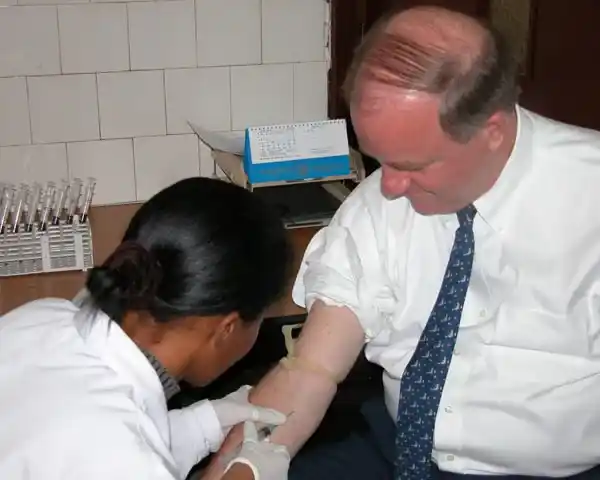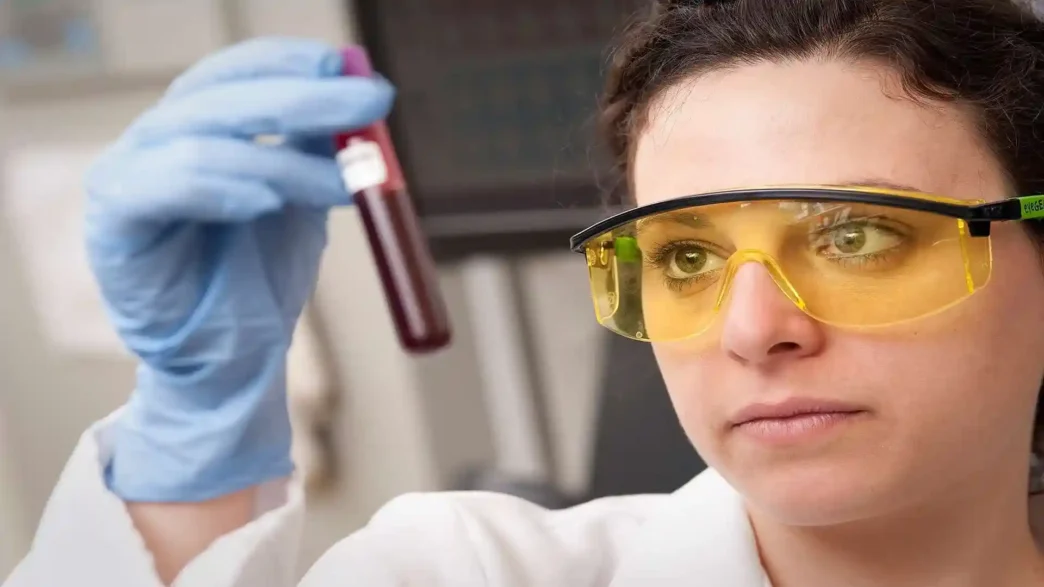A groundbreaking study led by Spanish researchers has developed a simple blood test capable of detecting early signs of Alzheimer’s disease with more than 90% accuracy. Published in Nature Medicine, the study offers new hope for early diagnosis thanks to a biomarker that can now be measured using standard lab equipment.
🧪 Research Overview
The research was spearheaded by scientists from the Barcelonaβeta Brain Research Center (BBRC), the Pasqual Maragall Foundation, and the Hospital del Mar Research Institute. Their findings stem from an analysis of 1,767 individuals across Spain, Sweden, and Italy, all of whom showed varying levels of cognitive impairment. This Spanish-led effort marks a significant leap forward in non-invasive Alzheimer’s diagnostics.
🧬 What Is Phospho-Tau217?
The test focuses on phospho-tau217, a specific form of the tau protein found in neurons. Elevated levels of this biomarker in the bloodstream can signal Alzheimer’s even before symptoms appear. Until recently, detecting phospho-tau217 required invasive spinal taps or costly PET scans, making widespread screening impractical.
This biomarker is a modified version of the tau protein found in neurons. Elevated levels can indicate Alzheimer’s even in its earliest stages—sometimes before symptoms appear.
Until now, detecting it required lumbar punctures or expensive PET scans. This new method uses standard lab equipment, making it far more accessible.

🏥 Real-World Implementation
Now, the researchers say the test can be performed in standard hospital laboratories using existing technology. “This biomarker is finally something real for real patients,” said Marc Suárez-Calvet, co-author of the study and a researcher at both BBRC and Hospital del Mar. Since the research was completed, numerous hospitals across Spain have adopted the new method.
However, Suárez-Calvet cautions that test results must be interpreted by specialists within the context of a full neurological evaluation. “These results should never be used in isolation,” he emphasized.
📈 Broader Medical Implications
Alzheimer’s disease is the most common form of dementia and the leading neurodegenerative condition globally. In Spain alone, around 800,000 people are currently living with the illness. While a few treatments have emerged that modestly slow its progression, diagnostic tests are typically reserved for individuals already exhibiting symptoms.
Some experts, however, believe that the combination of predictive testing and improved therapies could pave the way for preventive screening in asymptomatic individuals—similar to how colon cancer is screened today. But early detection is complicated by the slow progression of Alzheimer’s and the fact that one-third of people over age 65 have beta-amyloid plaques without ever developing the disease.

In clinical studies involving individuals with a genetic predisposition to Alzheimer’s, researchers observed that pathological changes begin decades before symptoms appear. These findings underscore the importance of early detection and support the growing optimism in the medical community.
💊 Treatment and Debate
Recently, a debate has emerged in Spain regarding the approval and commercialization of lecanemab, a drug that has shown modest benefits and is targeted at a small group of patients. While not a cure, some researchers view it as a step forward and are exploring its use in asymptomatic individuals with high biomarker levels as a preventive measure.
🌍 Global Perspective
This development is not just a major scientific milestone for Spain, but a globally significant advancement with direct implications for English-speaking countries. In nations like the U.S., U.K., Canada, and Australia—where healthcare systems are grappling with rapidly aging populations—an accessible, non-invasive, and accurate diagnostic tool could transform Alzheimer’s care.
By removing the need for expensive imaging or invasive procedures, the test may enable earlier intervention, support more personalized care strategies, and optimize healthcare resources. It also highlights the increasing role that countries like Spain are playing in leading neurological research, challenging long-held assumptions about where top-tier innovation originates.
That said, caution remains crucial. Any broad implementation must ensure proper training and clinical guidelines to avoid misdiagnoses or unnecessary anxiety. But if paired with evolving treatments, this test could become a cornerstone in the early detection and management of Alzheimer’s across the globe.
Information Source:
Photo Attribution:
“Checking Blood Sample” by US Army Africa, available on Wikimedia Commons, licensed under CC BY 2.0.
“Tobias – AIDS test” by Janice Haney Carr / CDC, available on Wikimedia Commons, licensed under Public Domain.
“Auguste D aus Marktbreit” by unknown artist, courtesy of Dr. Alois Alzheimer, available on Wikimedia Commons, licensed under Public Domain.
 English
English Español
Español







